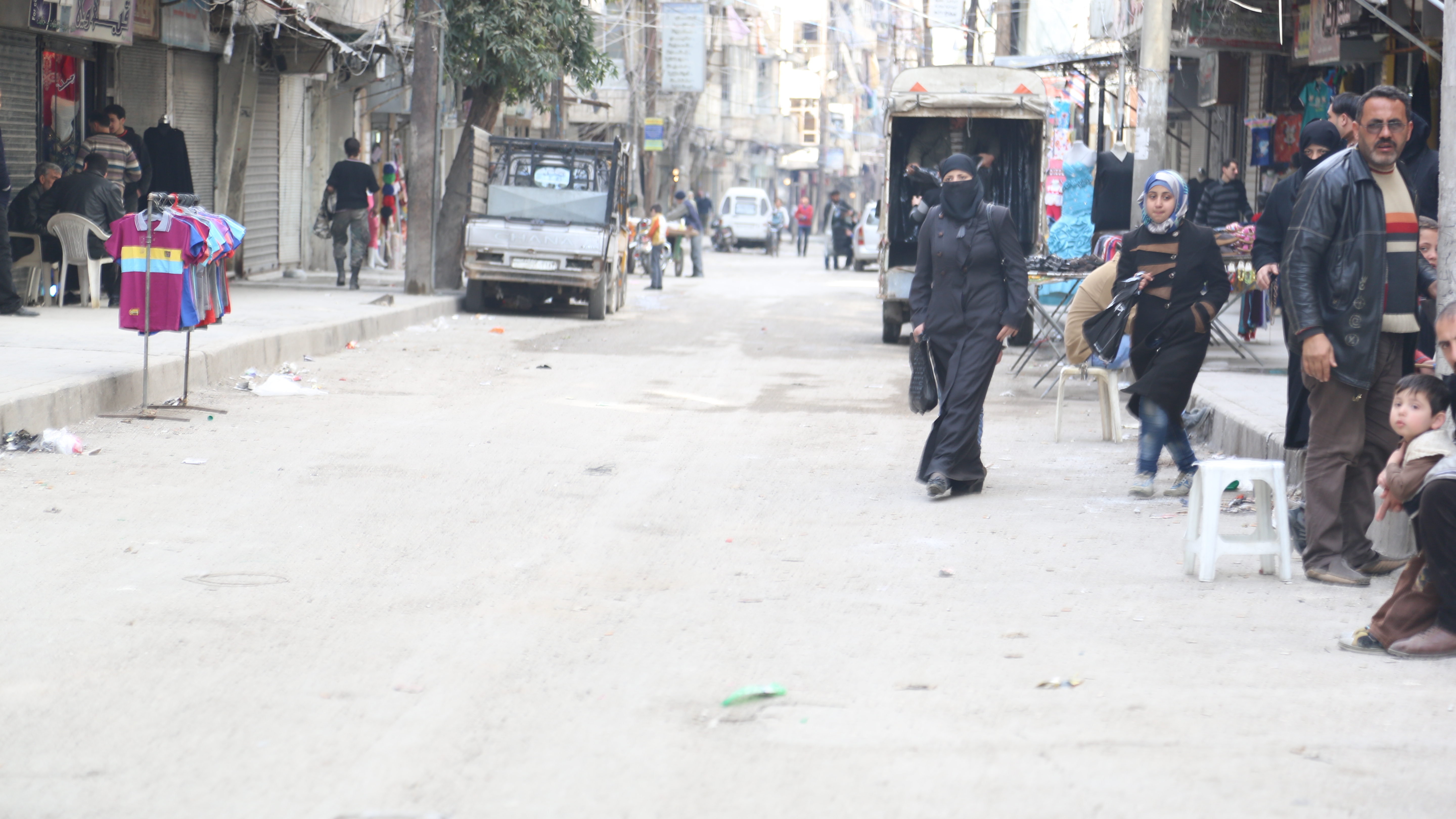Deprived of School, Work and Country

When the Syrian revolution began, I was still attending at Damascus University, and like all the other students there, I was forced to participate in pro-government demonstrations.
We used to gather at university and march towards Tishrin Park. This was no longer a place where families could enjoy a day out, but rather a meeting point where different demonstrations would fuse into one large crowd.
When we were dismissed, we would be herded back to university so that the authorities could register our names and keep track of who had participated and who hadn’t.
I felt quite lost during those days. The future seemed very bleak.
One day when I was on my way to university, a tragedy unfolded before my eyes. The bus I had boarded had stopped at a traffic light beside a government building. There were a few soldiers on guard there, and they were playfully spraying each other with water.
All of a sudden, there was a deafening explosion and a bright flash.
It was later reported that two car bombs had detonated only 300 metres away from where I was. Those few metres had saved me from certain death.
I slowly got out of the bus and looked around me. I had suffered minor injuries, as had the other passengers.
Passengers on another minibus closer to the explosions were not so lucky. They had been blown out of their seats. All that was left of them was body parts and pools of blood. The only person left inside the vehicle was the driver, and he was engulfed in a raging fire.
I looked at the government building that had been targeted. The playful soldiers no longer stood guard. Scattered pieces of flesh and trails of blood was all that remained of them.
Everywhere I turned, I saw glass, blood and body parts. I stood there in shock. It was a nightmare.
Moments later, I saw a number of TV crews arriving on the scene to film the devastation. I turned around and headed back home.

I was living with my uncle in the Sayida Zeinab neighbourhood. He was a policeman who worked at the local station. I told his wife what had happened, and then tried to get some rest.
That evening, we heard a loud explosion followed by rounds of gunfire. We tried phoning my uncle to ask whether he knew what was happening, but we couldn’t get through. The incident I had witnessed that day had affected me immensely, and I didn’t calm down until he finally called us to say he was all right.
When he came home that night, he told us what had happened. The Sayida Zeinab police station had come under attack, and had been in the middle of the explosion and gunfire we had heard. The attackers wanted the policemen to surrender, but none of them dared to. The stand-off resulted in a gun-battle. Luckily, there were no casualties.
The following morning, I decided to go back to university. I passed through the area where the explosions had happened and was surprised to find that life was back to normal, as if nothing had happened.
Following these incidents, anti-government demonstrations in Sayida Zeinab became more frequent. One Friday morning, a group of protesters gathered at our local mosque, but they were quickly dispersed by groups of men who used rubber batons to beat them.
Our neighbourhood came under tighter controls imposed by the security forces, who began searching houses, even those that only had female occupants.
I grew increasingly fearful. Why was no one respecting our privacy any more?
Crime was also on the increase in the neighbourhood. I started carrying a knife in my bag. I actually used it once to stab the hand of a drunken man who was harassing me. He backed away without uttering a word, as if he felt no pain.
My uncle was in constant danger during those days, and he feared for his children and me. After long, secret deliberations with his wife, he decided to desert from the police.
He left his post, I left my university and we fled. Syria was no longer safe. Death threatened anyone who lived there.
Hiba al-Aboud is the pseudonym of a Damascus Bureau contributor. The 24-year-old was forced to abandon her Arabic literature course at Damascus University when the revolution started. She now works at the Radio Fresh station.
Read the Arabic version of this article here.
